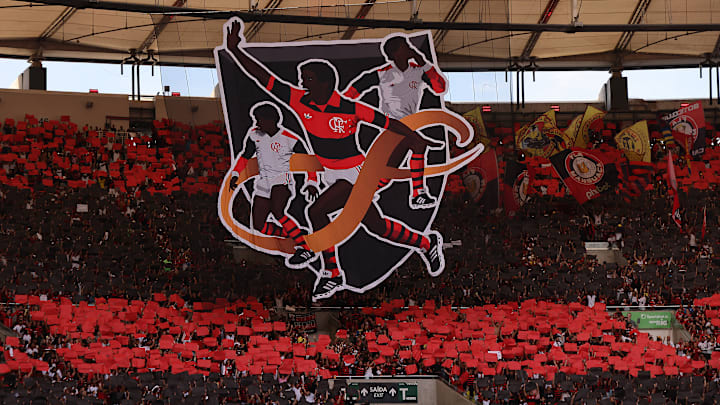Flamengo is on a roll! After establishing themselves as one of the biggest clubs in Latin America, the Rubro-Negro Carioca are now targeting the European market. And the first move is nothing less than the purchase of Leixões, a Portuguese club currently playing in the second division. The deal, which should be made official in the next few days, according to Folha de São Paulo, is worth around 10 million euros, giving Flamengo control of 56.66% of the SAD (Sociedade Anônima do Futebol) of the Portuguese club. But will this bold gamble pay off or is it just a shot in the dark?
Follow Playing for 90 on X (Twitter).
Rubro-Negro, which already has a solid fan base in Brazil and abroad, seems determined to expand its dominance. With the purchase of Leixões, Flamengo is not only increasing its global presence, but also pursuing something that until now seemed out of its reach: competing in the Champions League. Yes, you read that right! The club's goal is to take the Portuguese team back to the elite of local soccer and, within five years, compete in the continent's main club competition. Quite an ambition, isn't it?
But let's not be fooled. This is no ordinary move. With the European market much more highly valued than the Brazilian one, Flamengo sees this acquisition as a golden opportunity to increase its revenues and strengthen itself economically. After all, training players in Europe is worth much more than in Brazil, and the Rubro-Negro knows this well. If the strong currency is the euro, Fla wants to gain from this appreciation.
The operation has already begun to bear fruit even before it is made official. Flamengo is already injecting funds into Leixões, which has allowed the Portuguese club to pay off debts and regularize players' salaries. In addition, the Rubro-Negro have already begun renovations at Estádio do Mar, Leixões' home, to modernize the facilities and prepare them for the challenges ahead. Not to mention the investment in training new talents, who will be prepared to shine on the European market.
Now, you may be wondering: why is Flamengo so interested in a club from Portugal's second division? Well, the answer may lie in the strategic vision of the red-black managers. Leixões, despite being far from the limelight, is a club with a rich history, founded in 1907, and a loyal fan base. Located in the charming coastal town of Matosinhos, the club has huge potential for growth, especially if it receives the right investment.
And this is where it gets interesting. Flamengo, with all its structure and financial power, has the chance to turn Leixões into a powerhouse in Portuguese soccer. Just imagine: a team that spent 14 seasons in the second division, with only one major title in its history (the 1960/61 Portuguese Cup), now having the chance to get back on its feet and, in the future, compete on an equal footing with the greats of Portugal. If that's not a challenge, I don't know what is.
However, like any big gamble, Flamengo's strategy is not without its risks. European soccer is a minefield, and taking a club like Leixões to the Champions League in just five years may seem like a distant dream, or even a utopia. The last time Leixões played in the Portuguese Primeira Liga was in the 2009/10 season, when they finished bottom of the competition. Since then, the club has struggled to return to the top flight, without success.
But let's face it, if there's one club that knows how to overcome challenges, it's Flamengo. The Mengão have proven time and time again that they can reinvent themselves and achieve feats that many thought impossible. And that's exactly what the fans are hoping for now. With this move into the European market, Flamengo is showing that it is not afraid to take risks. It is preparing for the future, building a base that can take the Rubro-Negro to new heights.
What's more, this strategy of buying a European club is also a masterstroke to expand the Flamengo brand. The European market is huge, and having a club like Leixões in the portfolio is a smart way to make the club's name increasingly recognized outside the Americas. It's sports marketing in the vein, with the potential to generate financial returns and visibility that few Brazilian clubs can achieve.
So don't be surprised if, in a few years' time, Flamengo is not only in the Libertadores, but also in the Champions League, with its players shining on the biggest stages in world soccer. Of course, the road there is long and full of obstacles, but Flamengo has shown that it is willing to take it. And if they succeed, it will be a historic achievement not only for the club, but for Brazilian soccer as a whole.
The purchase of Leixões could be just the beginning of a new era for Flamengo, an era in which the Rubro-Negro not only dominates Brazil, but also begins to make history in Europe. Let's see how far this audacious move will take the Rubro-Negro, but one thing is certain: Flamengo won't stop here.
